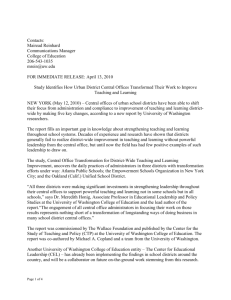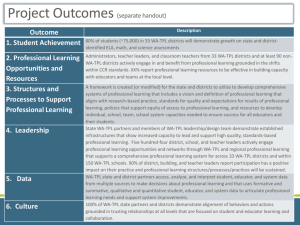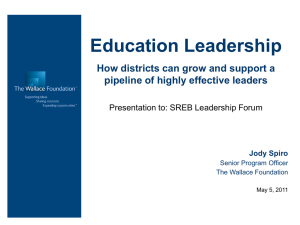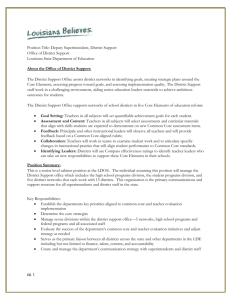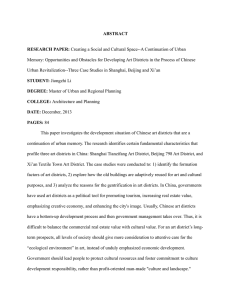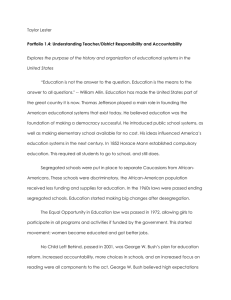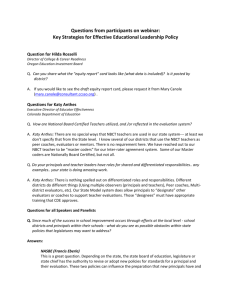Building Capacity in District and Campus Leaders
advertisement
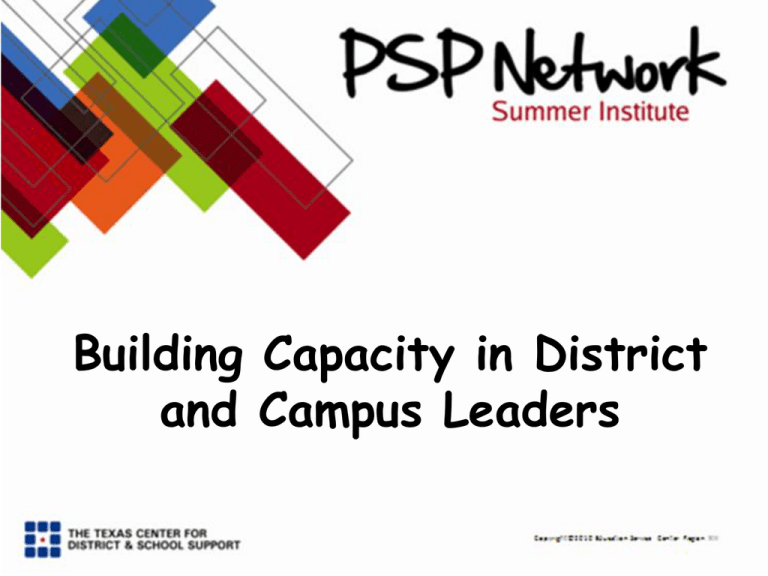
Building Capacity in District and Campus Leaders Goals • Review what is meant by building leadership capacity • Define barriers to developing leadership capacity and share solutions to those barriers • Make connections to other tools and resources that are available on leadership capacity • Practice using a new technology tool for facilitating meetings CSF Use of Data to Drive Instruction • Knowledge of current accountability systems • Knowledge/ability to conduct a Campus Needs Assessment • Knowledge/ability to analyze student performance data Leadership Effectiveness • Knowledge of best practices in leadership development • Ability to assess leadership skills/capacity in order to support/develop leaders • Ability to assist leaders in systems of support, operational flexibility, resource flexibility and utilization Milestones School Climate • Ability to assess mission, vision and values • Knowledge of ways to establish and sustain a safe and orderly environment Active Engagement through Technology We may not be digital natives but we will be digital role models … TodaysMeet.com http://todaysmeet.com/PSPandLeadership Ponder – Discuss - Post Why is building leadership capacity important in the schools and districts in which we work? “Leadership capacity building can be defined as broad-based, skillful participation in the work of leadership.” -Linda Lambert 4 A’s Protocol • What Assumptions does the author of the text hold? • What do you Agree with in the text? • What do you want to Argue with in the text? • What parts of the text do you want to Aspire to? Six Critical Factors 1. The school communities core values must focus its priorities. 2. As teacher leadership grows, principals must let go of some authority and responsibility 3. Educators must define themselves as learners, teachers and leaders Six Critical Factors 4. We must invest in each other’s learning to create reciprocity. 5. The first tenet of leadership capacity is “broad based participation.” 6. Districts must negotiate the political landscape to provide professional time and development, a conceptual framework for improvement, and tailored succession practices (fitting the principal to the school). High Leadership Capacity Medium Leadership Capacity Low Leadership Capacity Barriers Solutions Effective Traits of Successful Principals Principal Planning Guides Additional Resources • Georgia Leadership Institute for School Improvement http://www.galeaders.org/?q=pbm • Central Office Transformation for District-Wide Teaching and Learning Improvement http://depts.washington.edu/ctpmail/PDFs/S2CentralAdmin-04-2010.pdf • Making Good Choices: Districts Take the Lead http://www.centerforcsri.org/pubs/mgcDistrictsLead.pdf • Seven Strategies for District Transformation http://erstrategies.org/documents/pdf/ers-sevenstrategies.pdf

